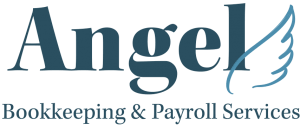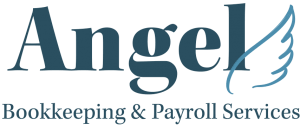Whether you’re into politics or would rather steer clear of Westminster, there’s a political fact that unites all business owners; the policies made in the Houses of Parliament affect us all. This is particularly true of the budget, which is announced annually and dictates government finances. This includes government spending and tax, both of which have an impact on UK businesses.
The most recent budget was announced on the 30th of October 2024 by the Labour government. It set out some pretty big plans for the country’s finances, but what do these mean for your small business? Learn more and discover how organising your accounts with the help of our small business bookkeeping team can help you get ahead of the changes.
National Living Wage Increases
In the Autumn 2024 labour budget, the government announced an increase to the national living wage. This is great news for workers but could cause problems for small businesses on a tight budget.
As of 1st April 2025, the minimum wage you need to pay your employees depending on their age will be:
- £12.21 for employees aged 21 and above (this is the new national living wage)
- £10.00 for employees ages 18-20
- £7.55 for employees aged 16-17
- £7.55 for all apprentices
Remember, too, that this is the minimum you need to pay your team. To stay competitive and secure top talent, it’s smart to pay more than the national living wage.
Tax Changes That Affect Small Businesses
The government brought in plenty of tax changes this year, many of which will affect small businesses. There’s a lot to get through, so we’ll dive straight into it.
Employer NICs to Rise
One of the most significant changes announced in the autumn 2024 budget is the rise to employer National Insurance contributions (NICs). From April 2025, NICs will increase to 15%, marking a 1.2% rise from current NICs. The threshold at which employers start paying NICs will also decrease drastically from £9,100 to £5,000.
This might sound like a scary change, but there is some good news. The employment allowance, which reduces the NICs for smaller businesses, is increasing from £5,000 to £10,500. This means that over 850,000 employers won’t have to pay NICs, with a further 1 million employers seeing no change to their NICs.
Capital Gains Tax Changes
If you sell business assets for profit, you’ll need to be aware of changes to capital gains tax (CGT). Namely, rates have increased at both basic and higher rates:
- Basic-rate taxpayers: From 10% to 18%
- Higher-rate taxpayers: From 20% to 24%
The CGT rate will also rise from 10% to 14% for disposals after April 6 2025, and to 18% from April 6 2026, while the annual tax-free allowance has dropped to £3,000.
Draft Duty
If you’re a small business serving alcohol, like a pub, bar, or restaurant, you’ll be happy to hear that draft duty is decreasing. The tax on draft alcoholic beverages will be reduced by 1.7%.
Income Tax Threshold is Thawing
For self-employed individuals, your income tax and national insurance (NI) will remain the same. A surprising announcement, though, is the end of the threshold freeze put in place by the last government.
It was expected that the labour government would extend the increase beyond 2028, meaning that the threshold at which people start paying income tax and NICs would stay the same. Instead, they’re going to increase the tax threshold in line with inflation, which means those who earn less may not have to pay any tax on their income, and others may have to pay less.
A Freeze on Business Rates
Business rates are a tax on business premises paid for by their owners or occupiers. For the 2025/26 tax year, the business rate multipliers have been frozen, preventing them from being increased in line with inflation.
There’s also a 40% relief on business rates for those in the leisure, retail, and hospitality industry, with a cap of £110,000. This replaces the previously available 75% relief.
E-Invoicing and MTD Updates
Moving away from tax and relief, the government also touched on some interesting points about how small businesses will record tax and invoice clients:
- Making tax digital (MTD): it was announced in the budget that plans for MTD are going ahead and the dates are unchanged. This means that from April 2026, certain self-employed individuals will have to comply with new MTD requirements. To learn more, read our blog covering everything you need to know about the MTD changes.
- E-invoicing: it was also revealed that the government are in consultation regarding e-invoicing, which could help automate and regulate the way small businesses invoice clients.
How Can Small Business Bookkeeping Help You Stay Ahead of Changes?
Not sure how you’ll navigate these changes? Our team at Angel Bookkeeping and Payroll Services are here to help.
With our professional bookkeeping, we can help you assess the impact of measures like the freeze on business rates and the increase of the national living wage. We can ensure you know whether you’re eligible for any relief, too, by maintaining accurate financial records and a keen knowledge of different criteria.
Our team are ahead of the curve when it comes to MTD, too. We already use software like Quickbooks and Sage and can help you switch to a digital finance system that’s compliant with government regulations.
Our small business bookkeeping and accounting ensures you take advantage of all tax-deductible expenses, too, helping you save money and reduce the impacts of a budget that could increase your outgoings. With our help, you can navigate the changes with ease.
Work With Our Sussex Bookkeepers
Ready to learn more about our services? From MTD to tax and payroll, we’re always happy to chat about our small business bookkeeping services. Get in touch with us today to continue the conversation.

